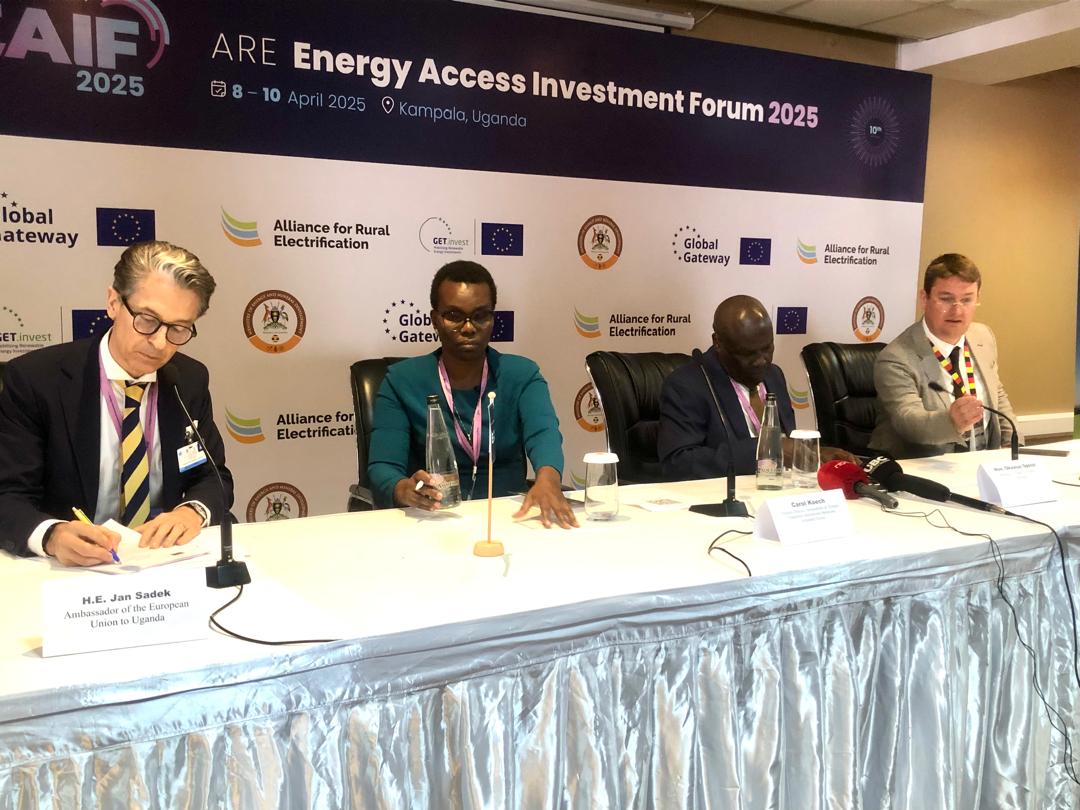The critical “financing gaps” hindering the advancement of major energy projects in Uganda took center stage at the recent Energy Access Investment Forum press conference.
Discussions underscored the urgent need for substantial capital mobilisation through strategic international partnerships to fully harness Uganda’s energy potential and accelerate electrification efforts across the nation and potentially the wider African continent.
Jan Sadek, the European Union (EU) Ambassador to Uganda, highlighted the EU’s commitment to being a “‘predictable and reliable partner’” in this endeavour.
He emphasised the potential for collaboration with European private sector actors, citing companies like Schneider Electric, to bring expertise and innovation to Uganda’s energy sector.
Ambassador Sadek pointed out the EU’s favorable trade policies, with “‘zero tariffs on imports from developing countries like Uganda,’” creating a conducive environment for economic cooperation.
He noted, “‘Uganda stands to benefit greatly if these partnerships are maximised. We’re looking at unlocking investments that could total over Shs 1.7 trillion (€400 million) in the coming years.’”
The Ambassador’s remarks built upon the assertion that successful energy sector development strategies implemented in Uganda could serve as a “‘scalable blueprint for the broader African continent.’” This “‘extrapolation,’” as it was termed, underscores Uganda’s potential as a model for effective energy infrastructure development. “‘If Uganda succeeds, it sets an example for the entire region,’” Sadek added.
A key area of focus was the significant need for financing major energy projects, particularly in the hydropower sector. Uganda possesses substantial hydropower resources, yet their full potential remains untapped.
Ambassador Sadek specifically mentioned the Nalubaale and Kiira hydropower plants, noting that while vital, some require significant “‘rehabilitation to enhance efficiency and output.’” “‘Rehabilitation works alone could demand upwards of Shs 425 billion (€100 million),’” he stated, reinforcing the urgency of securing funds to restore these critical installations.
Okaasai Opolot, the State Minister for Energy, acknowledged the pressing need to “‘mobilize more funding for the energy sector through international partnerships’” to address the financing gaps.
While affirming the government’s ongoing efforts, he stressed the crucial role of external investment in bridging the existing funding deficits.
“‘We are currently facing a funding gap exceeding Shs 2.55 trillion (€600 million), which hampers our capacity to fast-track electrification,’” Opolot disclosed during the press conference.
Beyond direct financial investment, the forum also addressed the less tangible yet equally critical aspect of “‘regulatory frameworks.’” It was emphasised that “‘consistent, reasonable, and effective regulations are paramount to attracting private sector participation in the energy sector.’” The consensus was that a collaborative approach, involving both government and private entities, is essential for sustainable development. “‘Without clear regulations, even the most willing investors will hesitate,’” Opolot warned.
David Lecoque, CEO of the Alliance for Rural Electrification (ARE), underscored the forum’s significance in driving global energy transformation, emphasising the “‘need for partnerships in the energy sector’” to achieve universal access and sustainable solutions.
“‘Private sector and development finance institutions must come together to close this gap. It’s not just an option; it’s a necessity if we want to connect millions of Ugandans to the grid,’” Lecoque urged.
The EU, through its “‘Global Gateway initiative,’” aims to be a significant catalyst in attracting investment to critical sectors like infrastructure, energy, and digitalisation across Africa, including Uganda.
This ambitious initiative seeks to mobilize “‘€150 billion (approximately Shs 637 trillion)’” through a combination of grants and loans.
A key objective of the Global Gateway is to achieve “‘electrification for 100 million Africans,’” highlighting the scale of the EU’s commitment to addressing the energy access challenge.


1 comment
This will fully harness Uganda’s energy potential and accelerate electrification efforts across the nation and potentially the wider African continent.
Comments are closed.